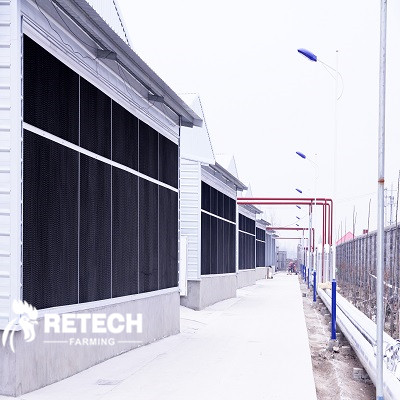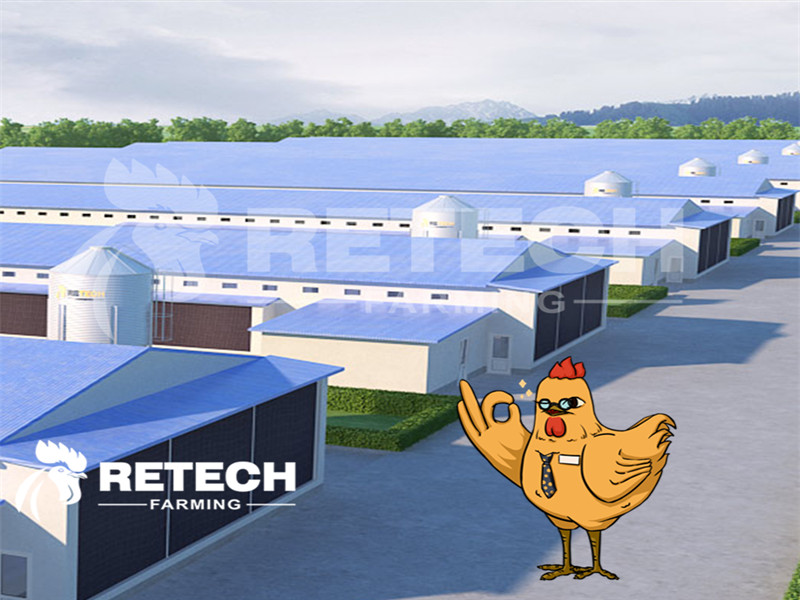Three major diseases of raising chickens in summer: heat stroke, white crown and coccidiosis!
In summer, the temperature is high, often accompanied by humidity, stuffiness and other phenomena. In addition, there are many mosquitoes and flies, and the chickens are prone to diseases. Therefore, chicken house in summer needs to beware of some diseases.

1.Anti-heatstroke
When the temperature of the chicken house is too high and the ventilation is poor, the chickens are prone to heat stroke.
Sick chickens are highly depressed, go on hunger strike, drink a lot of water, have difficulty breathing, gasp for breath, and have unsteady gait. In severe cases, the chickens will die in large numbers.
Prevention:
- Sufficient and clean water should be provided for chickens in summer. Vitamin C can be added to the water in an appropriate amount, or ice cubes can be added to assist in cooling.
- Try to feed the ration at 6:00am, 6:00pm and 10:00pm, i.e. when it is cool, to promote feed intake.
- Cover the chicken house with straw and sprinkle cool water, build a pergola or shade net for the chicken house, and plant grass and trees around the chicken house to reduce the temperature of the chicken house.
- After 12 noon every day, cool well water is sprayed in the chicken house, but the doors and windows must be opened at the same time to maintain air circulation, and an exhaust fan can also be installed to speed up the discharge of hot air.
- If the chicken is found to have heatstroke, immediately transfer the chicken to a cool and ventilated place or soak it in cold water for a while;
2.Prevention of white crown disease
White crown disease is mainly transmitted by the bite of Culicoides.
After being bitten, 3-6-week-old chicks have severe morbidity, high mortality, and bleeding from the mouth before death.
Chickens with mild infection have symptoms such as fever, loss of appetite, loose feathers, salivation and diarrhea, pale cockscombs and wattles, and motionless, and often die from bleeding 1-2 days after the onset.

chicken farms
Prevention:
- Spray all possible areas of Culicoides, such as walls, feed buckets, drinking troughs, etc., with pyrethroid insecticides;
- Or at dawn and dusk, use wormwood and rotten leaves mixed with medicine to light the smoke.
- Keep the house hygienic and remove weeds and shrubs from the surrounding environment to reduce the gathering activity of Culicoides.
- Once sick chickens are found, the chicken farm is closed immediately, and the sick and dead chicks are disinfected and then burned and buried.
- Isolate and treat the sick chickens and disinfect the environment.
3.Anti-coccidiosis
Sick chickens show symptoms of weight loss, anemia and bloody dysentery. Sick chickens are often depressed, coma and paralysis of feet and wings. The mortality rate can reach more than 20%.
Prevention:
- Chicks and adult chickens are reared in groups to ensure the cleanliness of feed, drinking water and environment;
- Strengthen the hygiene of the litter, generally sterilize around 15 days, and give full-price feed to enhance resistance.
- Once the disease is found in the chicken farm, it should be treated in time.


